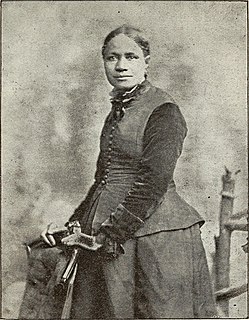A Quote by Mary Wollstonecraft
It is justice, not charity, that is wanting in the world.
Related Quotes
While the word charity connotes a single act of giving, justice speaks to right living, of aligning oneself with the world in a way that sustains rather than exploits the rest of creation. Justice is not a gift; it’s a lifestyle, a commitment to the Jewish concept of tikkun olam—‘repairing the world.’
Charity is commendable; everyone should be charitable. But justice aims to create a social order in which, if individuals choose not to be charitable, people still don't go hungry, unschooled or sick without care. Charity depends on the vicissitudes of whim and personal wealth; justice depends on commitment instead of circumstance.
What is meant by charity? Charity is not fundamental. It is really helping on the misery of the world, not eradicating it. One looks for name and fame and covers his efforts to obtain them with the enamel of charity and good works. He is working for himself under the pretext of working for others. Every so-called charity is an encouragement of the very evil it claims to operate against.
But two things are wanting in American civilization - a keener and deeper, broader and tenderer sense of justice - a sense of humanity, which shall crystallize into the life of a nation the sentiment that justice, simple justice, is the right, not simply of the strong and powerful, but of the weakest and feeblest of all God's children.
Quite agreeable, of course, was this state of things to those who thought it in their abundant riches the result of inevitable economic laws and accordingly, as if it were for charity to veil the violation of justice which lawmakers not only tolerated but at times sanctioned, wanted the whole care of supporting the poor committed to charity alone.
When we want to help the poor, we usually offer them charity. Most often we use charity to avoid recognizing the problem and finding the solution for it. Charity becomes a way to shrug off our responsibility. But charity is no solution to poverty. Charity only perpetuates poverty by taking the initiative away from the poor. Charity allows us to go ahead with our own lives without worrying about the lives of the poor. Charity appeases our consciences.
While business advertises, charity is taught to beg. While business motivates with a dollar, charity is told to motivate with guilt. While business takes chances, charity is expected to be cautious. We measure the success of businesses over the long term, but we want our gratification in charity immediately. We are taught that a return on investment should be offered for making consumer goods, but not for making a better world.
I felt that the Church was the Church of the poor,... but at the same time, I felt that it did not set its face against a social order which made so much charity in the present sense of the word necessary. I felt that charity was a word to choke over. Who wanted charity? And it was not just human pride but a strong sense of man's dignity and worth, and what was due to him in justice, that made me resent, rather than feel pround of so mighty a sum total of Catholic institutions.




































